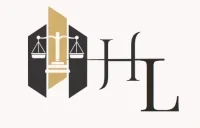
On July 31, 2024, the Hon’ble Delhi High Court quashed and remanded the matter pertaining to an order dated April 20, 2024, by the GST Department. The said case involves the reversal/disallowing of Input Tax Credit (ITC) availed by the petitioner. The primary allegation in this case is that the petitioner seems to have availed ITC from canceled dealers, return defaulters, and tax non-payers. Therefore, the Department proceeded to reverse the ITC claimed from such canceled dealers, which led to a demand of ₹46,27,512 with interest and penalties.
This issue was brought as a writ before the Hon’ble High Court of Delhi. The High Court was pleased to quash and remand the matter back for fresh adjudication. The reasons for such quashing are:
- Lack of Evidence: The order did not provide specific evidence that the suppliers failed to pay taxes and did not provide evidence that the supplier had failed to fulfill his obligation.
- Mechanical Liability Confirmation: The liability was confirmed without properly considering the petitioner’s valid defenses.
- Ignoring Petitioner’s Response: The petitioner’s claims that suppliers were tax-compliant were not addressed.
- Non-Compliance with Legal Standards: The court observed that the Adjudicating Authority did not adhere to the requirements of Section 16(2)(c) of the CGST Act, which stipulates that Input Tax Credit (ITC) is only available if the tax on the supply has been actually paid to the government. There was no proof provided in the order that the suppliers had not paid the required taxes.
- Procedural Fairness: The High Court emphasized the importance of procedural fairness and the need for the Adjudicating Authority to provide clear and substantiated reasons for any liability imposed.
The above case tends to help the assessees who are facing issues where reversal of ITC is alleged by the department, even when the supplier of inputs had properly followed the due provisions under Section 16 of the CGST Act, 2017. This is a case where the Delhi High Court mandated the department to pass orders with clear and substantial reasons after considering the reply of the assessee.
Case Details:
Case Name: Hanuman Industrial Corporation vs. Govt of NCT of Delhi
Judges: Hon’ble Mr. Justice Vibhu Bakhru and Hon’ble Mr. Justice Sachin Datta
Date of Judgment: July 31, 2024.
Please do Subscribe to our Newsletters for Latest Posts.
Read our recent summaries.
-
Supreme Court Quashes Criminal Proceedings After One Time Settlement: Key Takeaways for Banking Fraud Cases
Supreme Court quashes criminal proceedings in N.S. Gnaneshwaran case after One Time Settlement between parties, emphasizing no continuing public interest warrants prosecution continuation.
-
Supreme Court Clarifies Whether an Application for Extension Under Section 29A(5) Can Be Filed After the Expiry of Time for Passing an Award.
This article discusses the Supreme Court’s clarification on Section 29A(5) of the Arbitration and Conciliation Act, addressing whether an application for extending the time limit to pass an arbitral award can be filed after the expiry of the prescribed period. Learn how the court’s ruling affects arbitration timelines and tribunal mandates
-
An Analysis of Implied Consent in Arbitration Proceedings Continuing Beyond 12 Months: A Brief Examination in Light of the Madras High Court’s Recent 2024 Judgment.
Explore the concept of implied consent in arbitration proceedings under Section 29-A of the Arbitration and Conciliation Act, focusing on the recent 2024 Madras High Court judgment in Ayyasamy vs. Shanmugavel. Understand the implications of continuing arbitration beyond the 12-month statutory limit.
